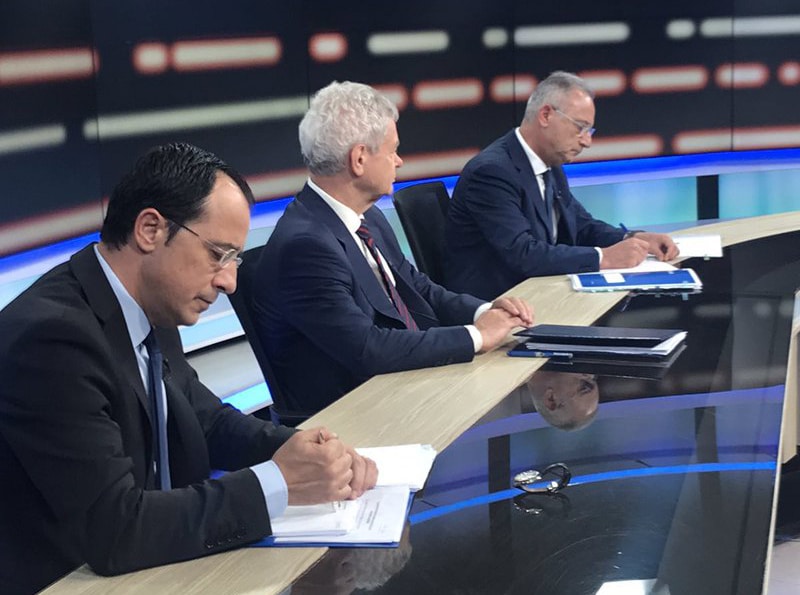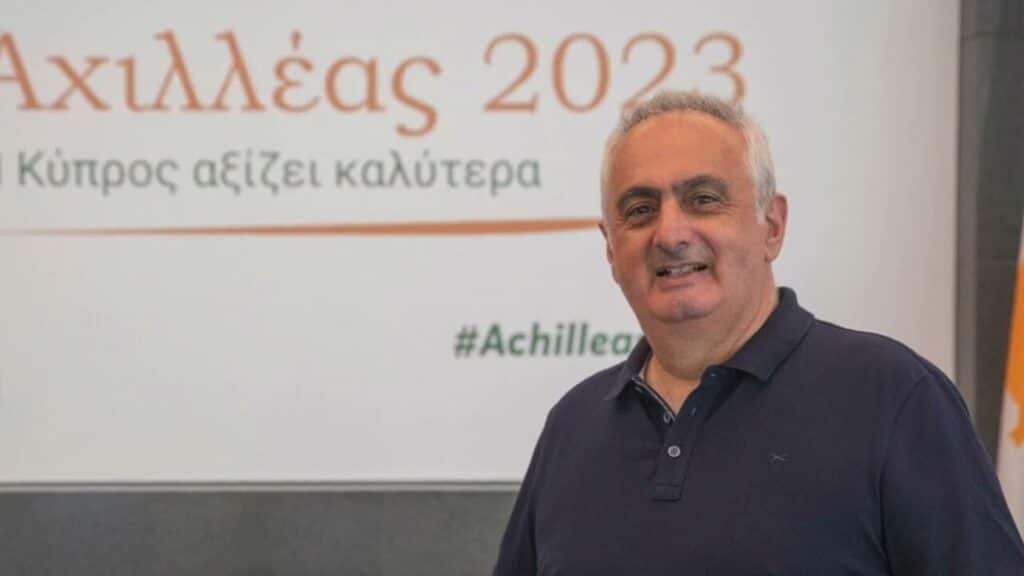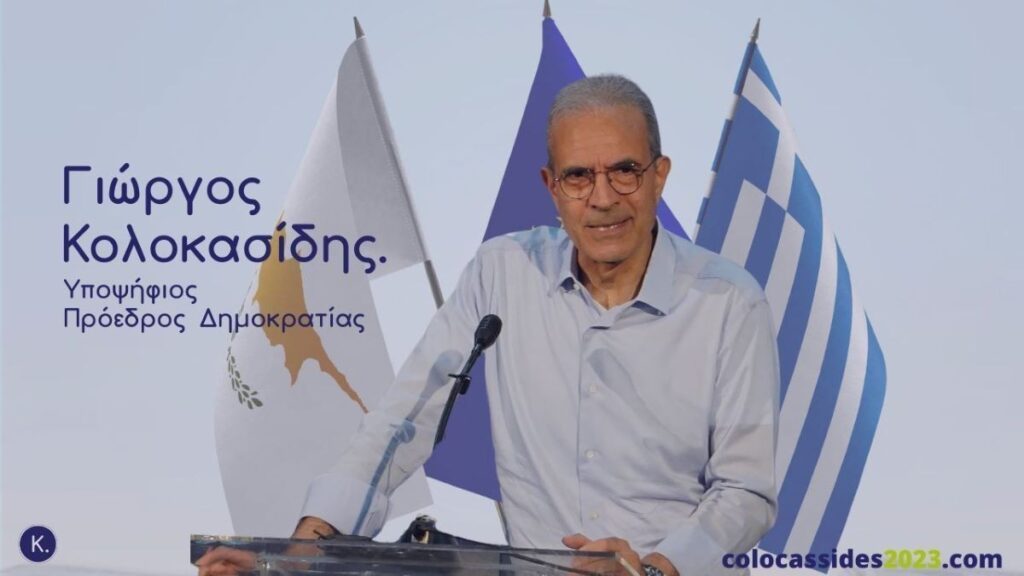Politics 101: when on the campaign trail, you need to demonstrate how you stand out from among the competition. Remember to underline differences, and downplay similarities.
This might well explain why the three main presidential candidates have largely avoided talking about the Cyprus issue. But people’s preoccupation with making ends meet in the current economic crunch also goes a long way toward explaining why the ‘Cyprus problem’ has had to take a backseat.
That this is just not the ‘right time’ to highlight the Cyprus issue seems to be the consensus – even among the two independent candidates who have made it a key plank of their campaign.
Seemingly driving the point home, an opinion poll published in late October found only 8 per cent of respondents considered the ‘Cyprus problem’ the most important issue facing the country. It was less important than the high cost of living (26 per cent), corruption (18 per cent) and the economy (15 per cent).
Still, there’s a little more nuance to that.
“Results in surveys often depend on how you frame a question,” says political analyst Christoforos Christoforou.
“Someone for example might rate the Cyprus issue low on their list of priorities, but not necessarily because they don’t think it’s important or relevant. Rather, in their mind when answering the pollster, they don’t consider it urgent at the moment. I think that’s what going on here.”
It’s no stretch to posit that, naturally, many people would at the moment be more concerned about their livelihoods as soaring inflation cuts through their earnings like butter.
Achilleas Demetriades, one of the few candidates who does try to emphasise the Cyprus issue, agrees.
“Young people, especially, are worried about jobs, about their future. I recall a couple of weeks ago, while speaking with a group of students from Tepak [Technical University] the discussion went on for almost one-and-a-half hours, and not a single question posed related to the Cyprus issue.”
And it’s hard to bring the Cyprus issue to the fore when it feels more ‘abstract’ than other matters commanding immediate attention.
“Whereas the Cyprus problem is always there lingering in the background, it can work the other way too for some individuals, in the sense that it’s taken for granted – yes it’s an issue but we’ll deal with it later,” says Giorgos Colocassides, another independent candidate who likewise strives to stress the national problem.
Though he and Demetriades lie on the opposite sides of the spectrum – the former rejects the bizonal, bicommunal federation model, the latter embraces it – they both consider the issue as existential.
“I think there’s a certain denial among a segment of the population about the national security threat that Turkey poses while the issue remains unresolved. And when I say the issue is existential, I don’t just mean the classic archetype of Turkey potentially grabbing the rest of the island. It also means Turkey eating away at Varosha and the buffer zone,” says Colocassides.
For Demetriades meanwhile, if the current status quo continues, it will inevitably lead to partition.
Another aspect impacting the lack of urgency at this juncture has to do with the realisation – both among politicians and laypeople – that no light exists at the end of the tunnel.
“How do you deal, for instance, with the fact that the Turkish Cypriot side, under Ersin Tatar, now calls for two separate states on Cyprus?” asks Christoforou.
“From the Greek Cypriot mainstream perspective, that pulls the rug from under our feet and makes any realistic settlement intangible and therefore, any attempts for a negotiated solution, seemingly a pointless exercise.”
Fatigue among the population is also cited as a factor – people have heard the same talking points over and over again for the last five decades or so.
And among the current crop of candidates, none make the cut as ‘thinking out of the box’.
At the same time, the dynamics of this particular election campaign play into the downgrading of the Cyprus issue.
Two of the three main contenders – independent Nikos Christodoulides and Akel’s Andreas Mavroyiannis – were associates of President Nicos Anastasiades during the peace talks in Switzerland in 2016 and 2017. And as for Disy’s Averof Neophytou, he obviously supported the president’s handling of the negotiations.
Having been involved in one way or another with that negotiating process, they have all subscribed to Anastasiades’ narrative that the Greek Cypriot side did all it could to keep the talks alive, only to be thwarted by Turkish intransigence. They can’t deviate from this official version of events.
So if the three are essentially ‘on the same page’, why would they highlight that? There’s no sparring value to be had.
“That’s why their rhetoric on the Cyprus issue is generic, all platitudes. All three call for engaging the European Union more directly in future peace talks, and want to use hydrocarbons as leverage. But just what they will do, policy specifics, is absent,” remarks Christoforou.
The commentator points out that the three top contenders did discuss the Cyprus issue during their initial debates in September and October. But now they’ve moved onto other matters.
“I recall that during the first televised debate, Mavroyiannis tried to score points against Christodoulides over the latter’s role in the Switzerland peace talks [at the time Christodoulides was director of the Diplomatic Office of the President]. He accused Christodoulides of colluding behind the scenes with then Greek Foreign Minister Kotzias to undermine the efforts underway.
“But here’s the paradox: this type of accusation leveled at Christodoulides may unwittingly have the opposite effect, by actually making Christodoulides look good among his support base. After all, who tends to back him? Well, it’s people affiliated with the Diko, Edek and Disy parties and who aren’t exactly enthusiastic about solving the Cyprus problem, despite paying lip service to the contrary. So when someone accuses Christodoulides of torpedoing the talks, these people probably think of that as an asset, not a liability.”
Weighing in on the position of the three main candidates, Demetriades says they’re singing from the same hymn sheet.
“Why haven’t they publicly committed to the strategic agreement formulated by UN Secretary-General Antonio Guterres back in 2018? It’s because they’re not part of the solution, but rather part of the problem.”









Click here to change your cookie preferences